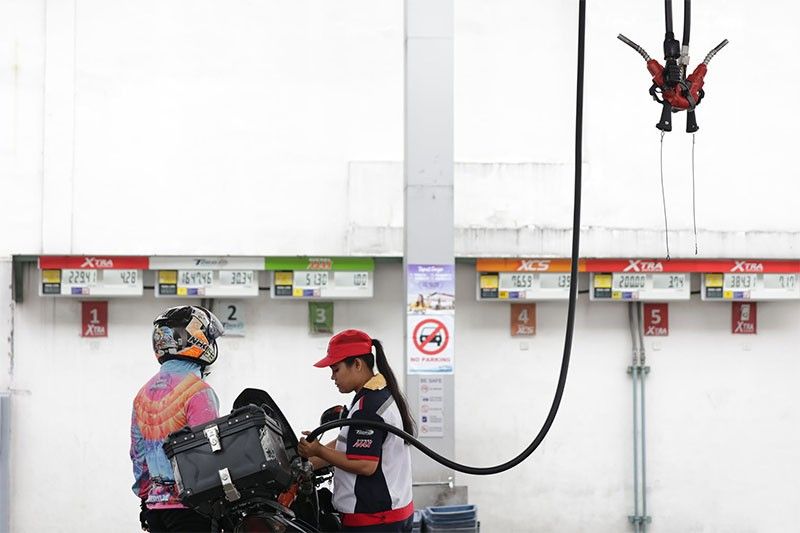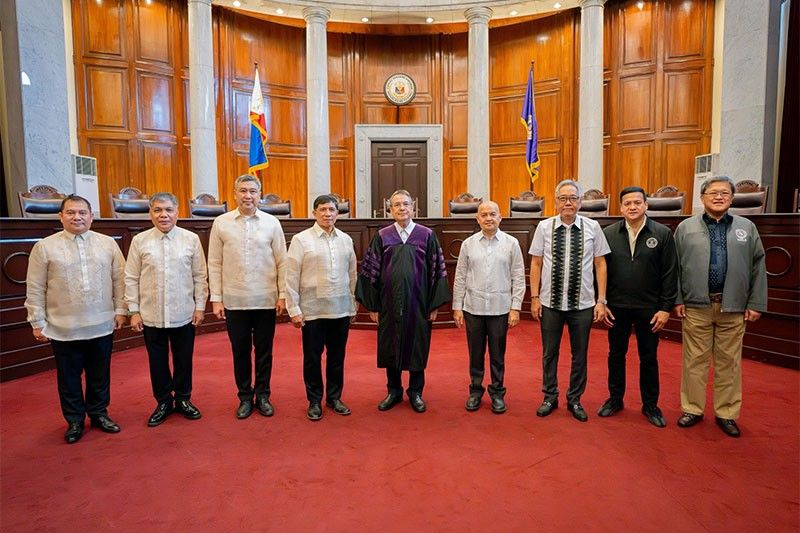
Upgrade to High-Speed Internet for only ₱1499/month!
Enjoy up to 100 Mbps fiber broadband, perfect for browsing, streaming, and gaming.
Visit Suniway.ph to learn
Cristina Chi - Philstar.com
April 4, 2025 | 10:27am
A pair of Taiwanese navy Kuang Hua VI-class missile boats sail in Keelung harbour on October 14, 2024. China deployed fighter jets and warships to encircle Taiwan on October 14, in drills Beijing said were aimed at sending a "stern warning" to "separatist" forces on the self-ruled island. Taiwanese President Lai Ching-te vowed Monday to "protect democratic Taiwan, and safeguard national security", while the defence ministry said it dispatched "appropriate forces" in response to the drills.
AFP / I-Hwa Cheng
MANILA, Philippines — The Philippines' cultural and economic office in Taiwan reassured the public on Thursday, April 3, that Filipinos in Taiwan remain safe despite China's routine military exercises around the island, saying workers there are "used to reports of China's presence."
"There is no cause for alarm because everyone here in Taiwan is conducting business as usual," Manila Economic and Cultural Office (MECO) Chairperson and Resident Representative Cheloy Garafil said in a statement. "Filipinos here in Taiwan are used to reports of China's presence around the territory."
This statement comes after AFP Chief Gen. Romeo Brawner Jr. instructed troops to begin planning for actions "in case there is an invasion of Taiwan" during his speech at Tuesday's Northern Luzon Command's (NOLCOM) 38th anniversary program.
NOLCOM, the military command responsible for the northern Philippine region closest to Taiwan, was told that the country would be "inevitably" involved in any Taiwan conflict scenario due to geographic proximity.
The Taiwan Strait has long been a flashpoint in the region, with Beijing viewing Taiwan as a breakaway province that must eventually be reunified — by force if necessary — while Taiwan asserts its self-governance.
Beijing has ramped up military activities around the island in recent years, including large-scale exercises and airspace incursions. This week, it launched joint military drills involving its army, navy, air force, and rocket force to simulate a blockade of Taiwan, calling it a "stern warning" to separatist forces.
The Philippines is among the three countries believed to be the "hardest hit" in the event of a full conflict scenario involving China, Taiwan and the US, according to the research group Economist Intelligence Unit.
As a result, the Philippines' military and defense officials have long been preparing for the threat of a Taiwan invasion, with talks of drawing up a contingency plan already publicly shared in 2023.
The AFP has since clarified that Brawner's recent speech was not in response to an imminent threat but rather "prudent measures" to ensure its troops' readiness for potential scenarios. The military emphasized that the focus was on preparing for non-combatant evacuation operations, given the significant presence of approximately 250,000 Overseas Filipino Workers in Taiwan.
Garafil noted that MECO and the Department of Migrant Workers already have contingency plans in place for a possible emergency situation in the self-ruled island.
"We are also in close coordination with Taiwan authorities regarding any security concerns," she added. "But at the moment, there's no need to worry because we are generally safe and secure here."
Taiwan responded to China's recent military drills by deploying its own aircraft and ships, according to reports from Taiwanese defense officials.
Tensions between China and Taiwan have drawn increasing international attention, with the United States maintaining a policy of "strategic ambiguity" while selling defensive weapons to Taiwan and periodically sending naval vessels through the Taiwan Strait.

 2 months ago
25
2 months ago
25



